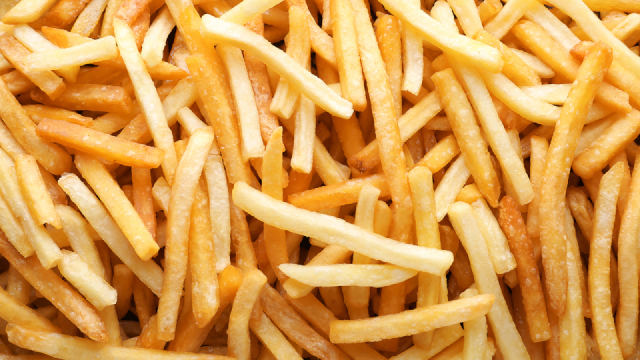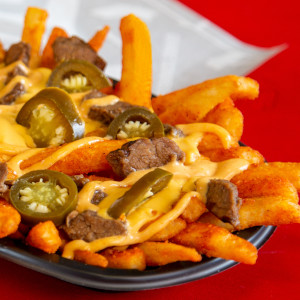It could be the headline of the week. Amid rumours that Russian President Putin is going gaga, confirmation that U.S. President Joe Biden will run again next year, and predictions there may be no relief from high food prices this year, Chinese researchers report that french fries may cause depression…
 Unlimited Fries: Do we eat because we’re sad… Or are we sad because we eat?
Unlimited Fries: Do we eat because we’re sad… Or are we sad because we eat?
Or does depression cause excess consumption of french fries?
The numbers
According to an abstract of the Chinese team’s report: “The study evaluated 140,728 people over 11.3 years. After excluding participants diagnosed with depression within the first two years, a total of 8,294 cases of anxiety and 12,735 cases of depression were found in those that consumed fried food, while specifically fried potatoes were found to have a 2 percent increase in risk of depression over fried white meat.” That translated to a 12 percent higher risk of anxiety and 7 percent higher risk of depression than seen in people who didn’t eat fried foods.
A ‘chicken or egg’ question?
However, lifestyle medicine specialist Dr. David Katz who was not involved in the study, has an interesting view: “The human component of this study may indicate just what it purports: that higher intake of fried food increases the risk of anxiety/depression. […] However, the causal pathway could just as readily go the other way: people with anxiety/depression [may] turn to ‘comfort food’ with increasing frequency for some semblance of relief.”
In other words, he says, folks with anxiety and depression may be using fried foods to self-medicate.
A chemical connetion?
Other researchers have studied the connection between certain chemical compounds found in all fried foods that may be a culprit in the link to depression. Called acrylamides, they are produced in the process of frying, particularly when frying potatoes, and are also suspected of having a connection with mood.
Dr. Walter at Harvard T.H. Chan School of Public Health, suggests: “Potatoes are a concern for possible effects of mood because they can cause large surges in blood sugar [followed by] hormonal responses to these surges. [Such] surges are partly blunted by fat, which would be provided by the fat from frying.”
Be all that as it may…
In the preamble to their study report, the researchers point to a recent rise in depression and anxiety rates worldwide, with increases of 27 percent and 25.6 percent, respectively, shown in the latest complete figures (from 2020). And the World Health Organization estimates that more than 5 percent of adults suffer from depression, globally.
Anything that may lead to a better understanding of the link between food and mood should be welcomed by all.
~ Maggie J.

